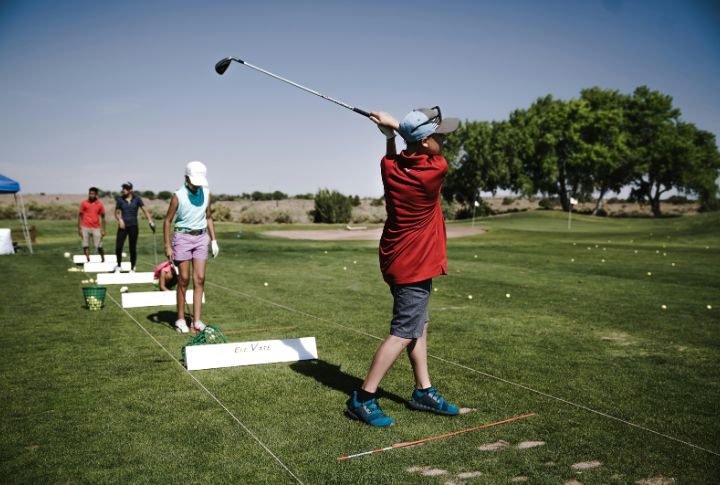
In rich families, children grow up with a different kind of education: one that blends financial literacy, social strategy, and long-term thinking. These kids typically thrive in a world where opportunities are shaped by both knowledge and access. Wondering what made the cut? Here are 20 lessons wealthy parents teach their children that go far beyond the classroom.
Open Conversations About Money

In wealthy families, talking about money is normal. Parents share financial lessons openly, and children grow up absorbing those ideas early. These conversations help kids understand how money works and gradually prepare them to manage finances with confidence as they get older.
Early Networking Skills

Here’s something you might not realize: rich families treat social connections like financial assets. Parents actively teach kids how to network and introduce them to mentors and industry leaders from a young age. Even family meetings focus on mapping out ways to use both money and relationships to open doors.
Learning Elite Activities

If you grew up wealthy, extracurricular activities often felt like investments rather than hobbies. Expensive sports and exclusive school activities provided more than entertainment. They nurtured talents and created experiences that shaped opportunities well into adulthood, offering advantages others rarely encountered.
Prioritizing Time Over Money

When money isn’t a concern, time becomes the priority. In wealthy households, tasks get delegated to assistants, nannies, or tutors. That choice reflects a belief that saving time matters more than saving money. The hours freed up are spent on self-development and opportunities that expand future success.
Basic Social Etiquette

Wealthy parents see etiquette as a long-term investment. Kids take formal classes and practice table manners or social skills at home. By starting early, parents prepare them for future situations where professionalism and confidence in social settings can make a real difference.
Expert Financial Guidance

Money lessons start young. Children may attend yearly planning meetings and learn about investment basics in simple terms. Over time, families bring in advisers to handle big decisions and teach children advanced strategies like tax-loss harvesting to keep wealth growing across generations.
Importance Of Traveling

They teach that travel is like a classroom without walls. Trips are built around major events, art exhibitions, or cultural landmarks. By experiencing different parts of the world firsthand, children learn history and perspective in ways books alone can’t always provide.
Choosing Quality Over Price

Spending habits in wealthy households focus on long-term value, not short-term savings. Instead of buying the cheapest option, parents invest in high-quality brands that last. Premium purchases often include better service and durability, which means the higher upfront cost usually pays off in reliability and longevity.
The Value Of Charitable Giving

Philanthropy begins early in homes where money isn’t scarce. Children may start with small budgets for causes they care about, later joining family efforts that take tax benefits into account. Eventually, some people create family foundations, blending generosity with strategy and teaching that giving can be both impactful and enduring.
Basic Investment Concepts

Most Americans don’t feel confident about building an investment plan, but wealthy families give their kids a head start. They introduce simple ideas like risk and diversification at the dinner table, sometimes even setting up mock portfolios. By adulthood, children already have practical investing experience.
Tax And Inheritance Planning

Estate planning is a part of normal conversation in affluent families. Parents explain assets, trusts, and inheritance while kids are still young. And when they’re teenagers, many of those kids already understand how multi-generational planning works. This prepares them to manage wealth effectively later on.
Passing Down Connections

Inheritance isn’t just about money. Rich parents carefully preserve networks of influence, such as elite schools, private clubs, and social circles, so their children step into opportunities already mapped out. Maintaining reputations and connections becomes a legacy. It ensures every generation has access to doors others can’t easily open.
Risk-Taking Mindset

You might expect wealthy families to play it safe, but many people do the opposite. Children are encouraged to take smart risks, explore business ideas, and think about investments early. A brave mindset like this makes risks and profits a natural part of their culture.
The Importance Of Top Schools

For families accustomed to privilege, education at top schools is necessary. Parents hire consultants to plan years in advance and utilize legacy admissions to secure spots at Ivy League universities, which are known for building legendary careers and personalities worldwide.
Discouraging Show-Offs

In some rich households, kids learn that discretion matters. Flashy logos and constant posting aren’t the norm. Instead, understated luxury and private conversations about money are emphasized. Those families believe real wealth doesn’t need to be advertised, which teaches children to value privacy over public display.
Stewardship Of Assets

Not every piece of wealth is managed from a distance. Families often take an active role in maintaining historic homes or heirlooms. Children learn how to care for these assets firsthand, treating preservation as part of their education and responsibility to protect what lasts across generations.
Finding Comfort In Luxurious Places

Kids grow up attending galas, dining in fine restaurants, or staying in luxury hotels. Over time, these spaces become familiar, not flashy. They also offer a quiet escape during stressful moments, whether it’s a weekend retreat or a calm corner at home. That comfort helps them relax and unwind in a safe and healthy way.
Maintaining A Solid Reputation

Reputation management starts early in homes where money and influence intersect. Parents teach their kids how to behave in public, how to keep private matters private, and how to separate personal identity from public perception. The lesson is clear: behavior and discretion protect the image and opportunity.
Understanding Power Dynamics

In wealthy families, children learn early how influence works—not just through money, but through positioning, timing, and relationships. Parents teach them how to read a room and when to lead or step back. These lessons help kids handle complex social and professional settings with ease, giving them an edge in situations where subtle power cues matter.
Handling Failures

Instead of shielding kids from failure, affluent families always prepare for it. Parents build confidence and financial safeguards for their kids, so their mistakes can be manageable. What might devastate others is turned into a controlled experience that offers valuable lessons for adulthood.
